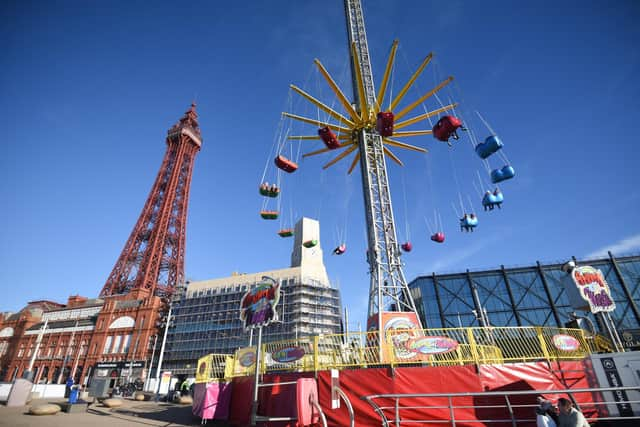Why Blackpool Tower will light blue (spoiler, it's a micro reason)
and live on Freeview channel 276
It’s one of several landmarks in Lancashire and Cumbria to light up as part of World Antimicrobial Awareness Week (18-24 November), Also turning blue will be the Hoad Monument near Ulverston, Barrow Town Hall and the Ashton Memorial in Lancaster’s Williamson Park.
Antimicrobials are agents – such as antibiotics – used to prevent, control and treat infectious diseases, but they are becoming increasingly ineffective. NHS Lancashire and South Cumbria Integrated Care Board (ICB) – which plans and buys health services across the region – is working hard to raise awareness of the issue of antimicrobial resistance, both with healthcare providers and through wider projects such as education of young people via schools.
Advertisement
Hide AdAdvertisement
Hide AdAndrew White, chief pharmacist for the ICB, said: “Antimicrobial resistance occurs when bacteria, viruses, fungi and parasites no longer respond to antimicrobial agents. As a result of drug resistance, antibiotics and other agents become ineffective and infections become difficult or impossible to treat. Here in Lancashire and South Cumbria, data shows our prescribing rates are the seventh highest out of 42 ICB areas in the country.”


Dr Arif Rajpura, Blackpool Council director of public health, said: “This is an important public health initiative aimed at encouraging the responsible use of antimicrobial medicines, such as antibiotics to keep medicines working. It is important to remember that antibiotics do not treat or prevent viruses, including the one that causes COVID-19. Research has shown that only 10 per cent of sore throats benefit from antibiotic treatment so it’s important to talk to your pharmacist about how to treat your symptoms first before going to the GP. It is vital we prevent antibiotics from getting into the environment. Always take any unused antibiotics to the pharmacy for safe disposal, don’t throw them down the toilet or in the bin. Washing hands properly, especially before eating, is the single best way of preventing the spread of infections.”
World Antimicrobial Awareness Week is a global campaign led by the World Health Organisation that is celebrated annually to improve awareness and understanding of antimicrobial resistance and encourage best practices among the public, healthcare providers and policymakers. This year, the theme of World Antibiotic Awareness Week is ‘preventing antimicrobial resistance together’.